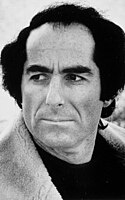Philip Roth Quote
This kindly unjudging judgment of the Swede could well have been a new development in Jerry, compassion a few hours old. That can happen when people die--the argument with them drops away and people so flawed while they were drawing breath that at times they were all but unbearable now assert themselves in the most appealing way, and what was least to your liking the day before yesterday becomes in the limousine behind the hearse a cause not only for sympathetic amusement but for admiration. In which estimate lies the greater reality--the uncharitable one permitted us before the funeral, forged, without any claptrap, in the skirmish of daily life, or the one that suffuses us with sadness at the family gathering afterward--this even an outsider can't judge. The sight of a coffin can effect a great change of heart--all at once you find you are not so disappointed in the person who is dead--but what the sight of a coffin does for a mind in its search for the truth, this I don't profess to know.
This kindly unjudging judgment of the Swede could well have been a new development in Jerry, compassion a few hours old. That can happen when people die--the argument with them drops away and people so flawed while they were drawing breath that at times they were all but unbearable now assert themselves in the most appealing way, and what was least to your liking the day before yesterday becomes in the limousine behind the hearse a cause not only for sympathetic amusement but for admiration. In which estimate lies the greater reality--the uncharitable one permitted us before the funeral, forged, without any claptrap, in the skirmish of daily life, or the one that suffuses us with sadness at the family gathering afterward--this even an outsider can't judge. The sight of a coffin can effect a great change of heart--all at once you find you are not so disappointed in the person who is dead--but what the sight of a coffin does for a mind in its search for the truth, this I don't profess to know.
Related Quotes
About Philip Roth
Roth was one of the most honored American writers of his generation. He received the National Book Critics Circle award for The Counterlife, the PEN/Faulkner Award for Operation Shylock, The Human Stain, and Everyman, a second National Book Award for Sabbath's Theater, and the Pulitzer Prize for American Pastoral. In 2005, the Library of America began publishing his complete works, making him the second author so anthologized while still living, after Eudora Welty. Harold Bloom named him one of the four greatest American novelists of his day, along with Cormac McCarthy, Thomas Pynchon, and Don DeLillo. In 2001, Roth received the inaugural Franz Kafka Prize in Prague.
